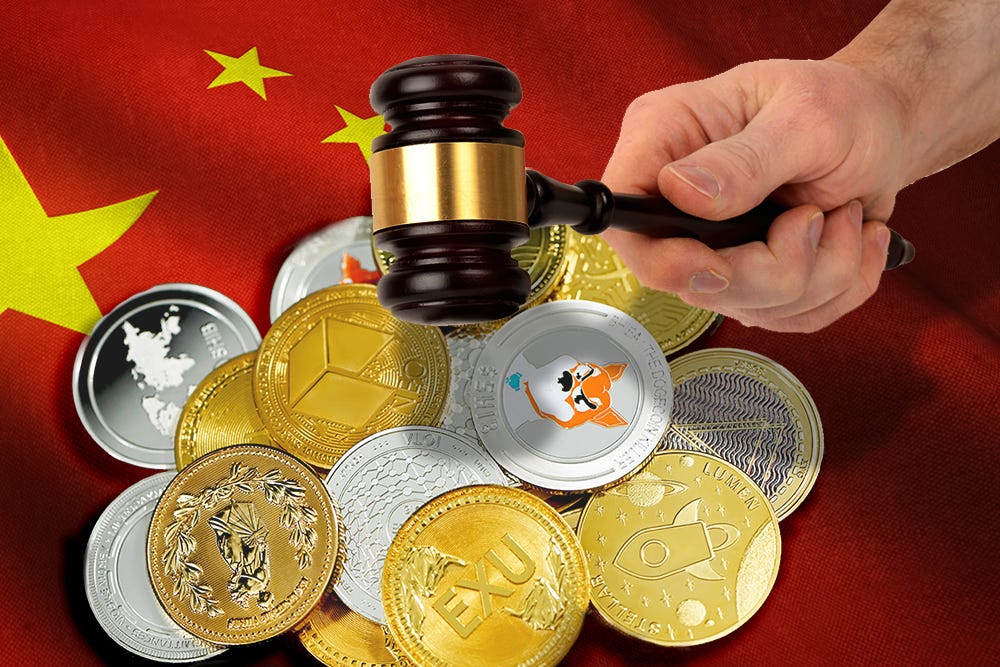In the “China Financial Stability Report 2021” released by the China Central Bank on September 3, the “Main Achievements in the Battle to Prevent and Resolve Major Financial Risks” emphasized that Internet asset management, equity crowdfunding, Internet insurance, virtual currency transactions, and Internet foreign exchange transactions has basically been completed and has been transferred to normalized supervision.
In fact, the previous statement of the central bank has already begun.
On July 30, the People's Bank of China held a work conference for the second half of 2021. Article 7 of the meeting (achievements in the first half of the year) proposed to severely crack down on illegal activities of virtual currencies. Article 7 of the plan for the second half of the year proposes to maintain a high pressure on the virtual currency trading hype. This statement is similar to the above.
On August 3, the Shanghai Headquarters of the People's Bank of China held a work conference for the second half of 2021, and proposed that the results achieved this year include: steadily advancing financial supervision and risk prevention and control, and maintaining the overall situation of local financial stability. Continue to guard against the risks of virtual currency transactions and the issuance of ICO tokens.
Regarding the work in the second half of the year, the Shanghai Headquarters of the People's Bank of China pointed out that it will severely crack down on illegal and illegal activities in foreign exchange fields such as underground money banks, cross-border gambling, and online foreign exchange speculation; and do a solid job of anti-money laundering supervision and promotion of money laundering convictions. Which no longer specifically mentions virtual currency.
These two meetings have shown that policymakers are satisfied with the crackdown in the first half of the year. Virtual currency is no longer the focus of crackdowns for the time being, and it has moved to normalized supervision.
In this round of crackdowns, Bitcoin mining is more affected. Exchanges have carried out more active self-restrictions, such as prohibiting China’s IP/mobile number registration and restricting China users to conduct contract transactions, Binance stopped allowing Chinese mobile phones to register for a period of time, and Huobi closed the contract for new users in China, resulting in a sharp drop in revenue. The above measures really help to "prevent the transfer of personal risks to society", which Chinese govenment cares most, and it is no longer easy for new investors to enter the "contract casino".
About "normalized supervision", what does it mean? First, at the China central bank level, anti-money laundering is still the focus, and the use of cryptocurrency for money laundering will continue to be the focus of the crackdown, because anti-money laundering is the top priority of the central bank in recent years; second, at the public security level, illegal fundraising, fraud, pyramid schemes, etc., are also the current focus of the crackdown; third, at the internet level, the promotion and marketing of crypto businesses on the Internet and social media may continue to be cleaned up.
However, just like the recent sudden blows to Chinese internet companies and the entertainment industry, the Chinese policies does not require long-term debates similar to those in the United States. Therefore, when new situations arise, they may still cause major changes in policies.
Based on past experience, these new conditions may lead to policy changes. First, the resurgence of large-scale Bitcoin mining was reported and disclosed by the official media, which in turn aroused the attention of decision makers; second, the emergence of "animal coin mania" similar to April-May, which triggered social discussions, and new investors entered one after another; third, the United States and the European Union have introduced regulatory policies, triggering Chinese regulators to follow up.
Follow us
Twitter: https://twitter.com/WuBlockchain
Telegram: https://t.me/wublockchainenglish


